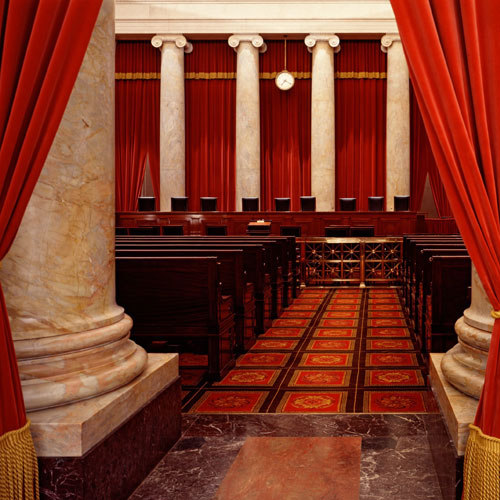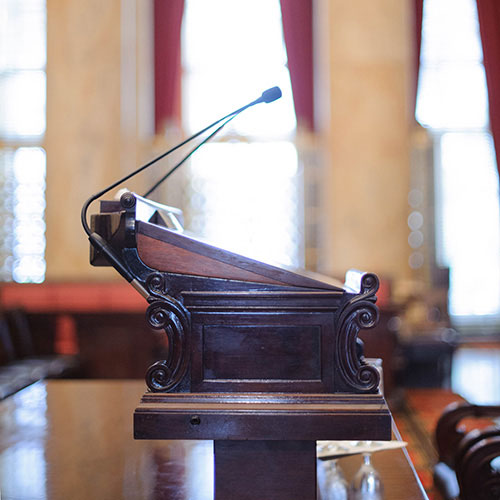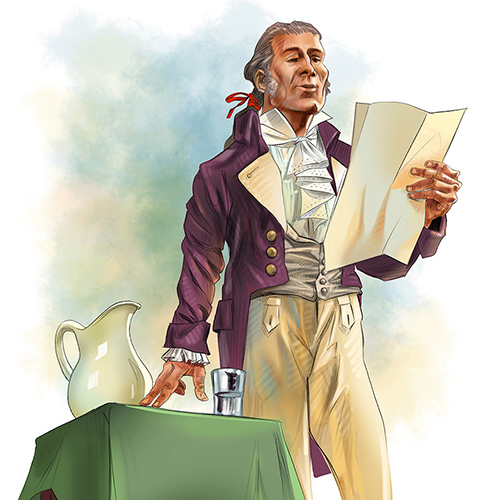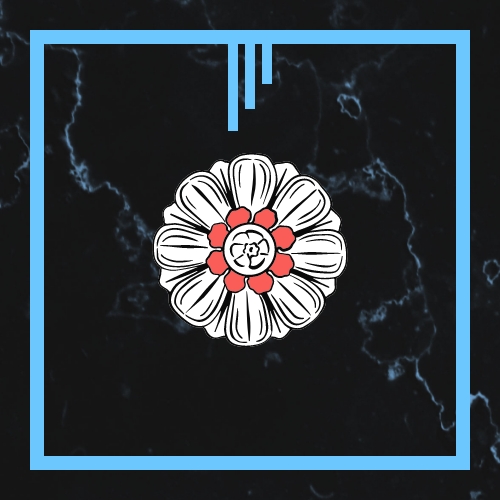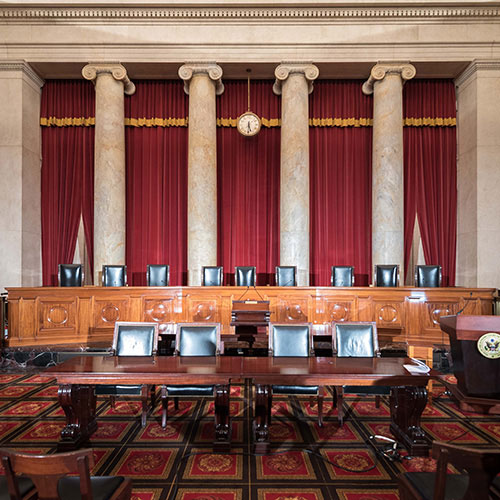Author: Chuck Wasserstrom
Dr. Michelle Deardorff was beaming as she shared her thoughts on the success of the program.
From June 10 to June 21, Deardorff—the Adolph S. Ochs Professor of Government and head of the University of Tennessee at Chattanooga Department of Political Science and Public Service—and UTC hosted “The Supreme Court and My Hometown,” a collaboration of the Supreme Court Historical Society, the United States District Court’s Eastern District of Tennessee and the UTC Department of Political Science and Public Service.
During that period, 20 local high school students participated in a day camp to investigate the federal courts, African American history and the impact of Supreme Court decisions.
“The program exceeded all of our expectations,” Deardorff said. “We’ve been planning this for about a year—the court, UTC, myself representing UTC and the Supreme Court Historical Society—and really thinking about what this could look like.
“I think the energy the college students have brought to this, the excitement the high school students have brought—their fascination with the topic, their willingness to put in long days, listening to lawyers and judges and academics, their willingness to engage—speaks well to future citizens whose interest in this and the preservation of the rule of law.”
Deardorff explained that “The Supreme Court and My Hometown” is an immersive, in-person civics education program for area high school students. Each program is sponsored and supported by the local federal court in partnership with the Supreme Court Historical Society.
In the federal court system’s present form, 94 district-level trial courts and 13 courts of appeals sit below the Supreme Court. The UTC event was the second in the nation to take place, following the program’s launch in the St. Louis area in fall 2023.
During each program, students study a Supreme Court case that originated in their hometown; engage with the case’s constitutional questions and procedural history; examine how the judicial branch interacts with the other two branches of government; create a capstone project to promote increased understanding about the case; and learn from legal mentors, professors and historians.
Historical context: United States v. Shipp
The 20 high school students who participated in the UTC camp learned about the 1906 Ed Johnson case that went to the Supreme Court as United States v. Shipp.
This landmark case was the only criminal trial ever held by the Supreme Court and underscored the Court’s authority to enforce its orders and ensure the protection of constitutional rights.
In that case, Hamilton County Sheriff Joseph F. Shipp and several co-defendants were charged with contempt of court for their involvement in the lynching of Johnson, an African American man. Johnson had been convicted of raping a white woman and was granted a stay of execution by Justice John Marshall Harlan pending an appeal to the Supreme Court.
Despite the stay, Shipp and his co-defendants failed to protect Johnson, who was forcibly taken from jail by a mob and lynched.
Deardorff said the students spent time in courthouses, went on tours, and heard speakers talk about how the law works, “and now they are synthesizing all this information for a public history display.”
Engaging the next generation
Senior United States District Judge Curtis L. Collier and his chief clerk, Carrie Stefaniak, have been working with Deardorff for a number of years on different projects.
When they learned about the creation of the hometown program, they reached out to Deardorff about UTC hosting the event.
“It is amazing to see this come together and see these kids from all over our region who are so involved and energetic about this. It is just heartwarming,” said Collier, who engaged with the students every day of the program. “I wish every citizen in this area could peek in and see what they’re doing and what they’re learning.”
Collier previously was chief judge of the District Court, completing a seven-year term in 2012. He was nominated to the federal bench by President Bill Clinton in 1995.
“The Supreme Court and My Hometown,” he said, was more than just learning about the specific case.
“They’re really learning in a very, very, in-depth way,” Collier explained. “Most people don’t get a chance to observe the inner workings of our legal system and also our civic obligations as citizens. They learned that back then, many people failed to live up to their obligations—and the consequences were tragic.
“I’m hopeful that out of this, they will have a greater understanding of the need for all of us to do our part in making our society a better place, a richer place and a more fair place. The legal system plays a part in that, but it’s not the only part. The larger society also has a role to play.”
Mentorship and impact
Five college students—four from UTC and one from Austin Peay State University in Clarksville, Tennessee—assisted in providing support for the high school students, including helping them with a capstone project.
“I’m really grateful to Dr. Deardorff for opening this opportunity up for me,” said UTC senior Taylor Nelson, a political science major from Memphis.
Nelson said she and the other university students were given two books to read before the program started.
“I had no idea about this case before reading the books,” she said, “so it’s just been really cool to learn more about it. I guess my poli sci background helps me understand and break it down for the high school students that are here and it gives me a little bit of an advantage in terms of digesting and understanding the effects of the Johnson case and the future applications of it.”
Nadine Habonimana, a senior political science major from Knoxville, Tennessee, said it was “very insightful getting to do this program.”
“It’s definitely not something that was around when I was in high school, especially with the depth that we’re getting into with the history and the court system itself,” Habonimana said. “The high school students have been independent throughout because they’re applying a lot of knowledge that they already have and then also getting to learn. They’re very excited and they’re very much into it.”
Junior Mychael Allen-Fennessee, a history major with an Africana Studies minor, said he enjoyed the mentorship aspect.
“It’s been awesome because a lot of the questions the kids are having are like, ‘Oh wow, how could someone do something like that?’ Or, ‘How could this happen?’ the Nashville native explained. “They have this perfect idea of what the court system is like today now, so they don’t understand the historical context of how it got to where it is today and how we have so many protections that we do today.
“Being able to look at the problems or the ills of our system in the past and seeing how they were fixed … Those steps are very fascinating.”
Junior political science major Isabella Craig, a native of Chattanooga, said the most significant impacts for her were watching the students learn and “being able to answer their questions and to work with them to learn about this case.”
“We’ve seen so many places of significance in Chattanooga and been able to learn about the impact that the federal system had on Chattanooga,” Craig said, “and just the way that the city of Chattanooga was impacted by these events and how they’re remembered now—all of the good and bad.”
Craig noted the role the Supreme Court Historical Society played in the experience.
“They have been amazing,” she said. “They have resources and information on this case that is typically hard to access for us as college students and high school students. But they’ve been able to give us resources on the case such as newspaper clippings. They’ve had the time to find all of this information and it’s been so helpful.”
Championing civic education
Nicole Maffei, the director of civic education for the Supreme Court Historical Society, credited the initiative to her boss, Jim Duff—the historical society’s executive director and the former director of the Administrative Office of the U.S. Courts.
“Civics has really become the center focus of the historical society, making sure that students of all ages understand how the judicial branch works, how the federal government works, how their role as active citizens within the system is critically important,” Maffei said. “Programs like this make my job so much fun—to watch the kind of arc of understanding unfold from the students’ perspectives, to hear them answering questions that at the beginning they didn’t know.
“Interacting with federal judges and courthouse staff is incredibly gratifying and really gives me hope for the future. We are creating these packets of students who are interested in how their government works and why things happen the way that they happen.”
